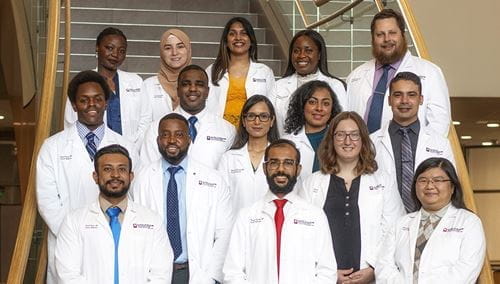
Health equity is foundational to our core mission to make Indiana one of the healthiest states. Data demonstrates that patients do better when they see themselves reflected in the care they receive. For this reason, we value and welcome individuals from all backgrounds to be part of the physician workforce. The breadth of experience that trainees of all backgrounds bring doesn’t just elevate patient care, it also elevates the learning environment. We grow as kind and empathetic human beings when we are exposed to people that are not like us. Alongside each of you, we are committed to courageously, collaboratively and continuously working towards building infrastructures that are accountable and environments that are welcoming and respectful towards all.
Together we will strive towards creating an institution where everyone thrives and feels seen — our patients are better for it and so are we.
We are committed to complying with the ACGME’s accreditation requirements as they pertain to the make-up of the trainee workforce and the training environment we provide. See the core requirements.